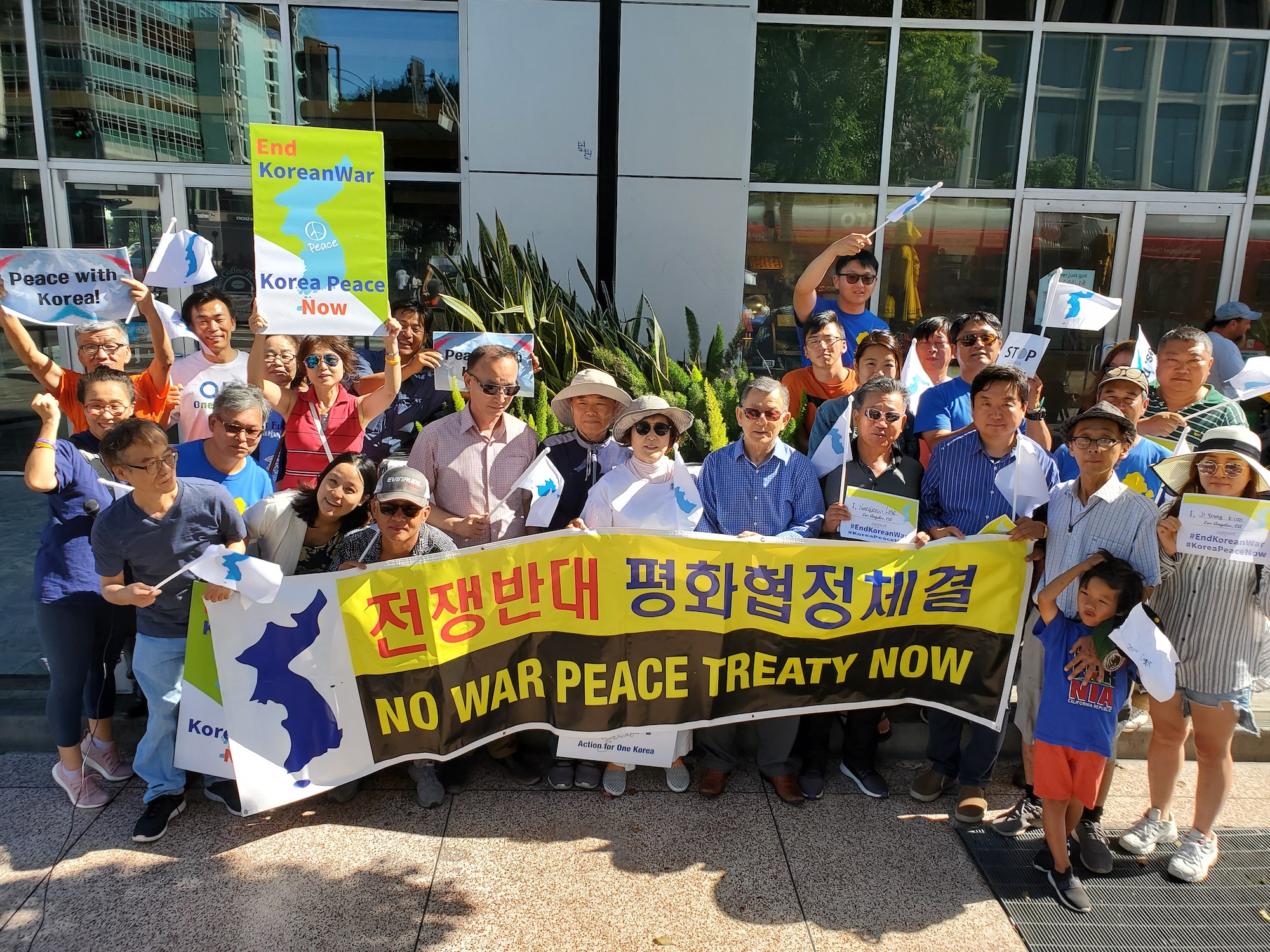Korean Americans Across the Country Mobilize to End the Korean War
July 7, 2021
Posted in: News • Press Releases
As talks between the United States and North Korea remain at a standstill, more than 230 people across the country — mostly Korean Americans — will participate in the “National Action to End the Korean War,” July 12-16, 2021.
As the fifth largest Asian American subgroup, Korean Americans represent a growing political constituency in the United States. In the 2020 presidential election, Asian American voter turnout skyrocketed more than any other racial demographic group, and there are now four Korean Americans — including three women — in Congress.
The “National Action to End the Korean War” will consist of virtual lobby visits with 167 Congressional offices in 31 states to advocate for H.R.3446, the Peace on the Korean Peninsula Act, which calls for serious, urgent diplomacy in pursuit of a binding peace agreement to formally end the Korean War, and H.R.1504/S.690, the Enhancing North Korean Humanitarian Assistance Act, which aims to ease the impact of sanctions on much-needed humanitarian aid to North Korea. Constituents will also encourage their members of Congress to cosponsor H.R.826, the Divided Families Reunification Act, to facilitate the reunion of Korean Americans and their family members in North Korea.
This year marks the sixth year of coordinated advocacy days for the cause of peace in Korea. When it first started in 2015, just 12 people participated; the effort has now grown to include over 200 people. The Korean War was only halted by an armistice in 1953, and constituents participating in this action see it as the root cause of ongoing tensions between the United States and North Korea, fueling the extreme militarization of the Korean Peninsula.
“Officially ending the Korean War with a peace agreement is the most realistic way to stop the spiraling arms race in Korea and Northeast Asia,” said Hyun Lee, Campaign and Advocacy Strategist for Women Cross DMZ, one of the groups organizing the virtual advocacy week. “It’s time for the Biden administration to listen to the voices of those most impacted by this unresolved 71-year-old war.”
“Congress has the opportunity to set the Biden administration up for success with North Korea, and recent polls show that 75% of the U.S. public thinks it’s important to reach a nuclear deal with the country,” said Dan Jasper with the American Friends Service Committee. “By clarifying humanitarian sanctions exemptions and expressing support for ending the Korean War, Congress can help the administration rebuild human and regional security on the Peninsula.”
“President Biden has done well in re-engaging on many international issues in his first five months in office, but so far not on Korea,” said Kevin Martin, the President of Peace Action and Coordinator of the Korea Peace Network, another one of the organizers of the virtual advocacy week. “Congress should press the Biden Administration to resume diplomacy, with the goal of a peace agreement that would make the U.S., the Korean peninsula, the region, and the world much safer.
“Too often, strict sanctions impact the flow of humanitarian aid to the North Korean people,” said Katerina Parsons, Legislative Associate for Mennonite Central Committee, “As humanitarians and peacebuilders, we want to ensure that U.S. policy is not an obstacle to meeting human need and does not prohibit the sort of engagement and dialogue that contribute to peace.”
The “National Action to End the Korean War” virtual advocacy week is organized by the Korea Peace Partnership, which consists of the Korea Peace Network, Korea Peace Now! Grassroots Network, and Peace Treaty Now.
###

